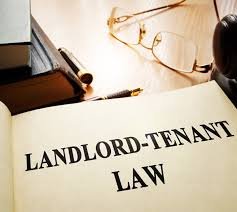What Landlords Should Know About Section 21 Evictions
Landlords must follow a strict legal process to ensure the eviction is valid and lawful. Understanding these requirements is crucial for landlords and eviction specialists who handle such matters.

Section 21 of the Housing Act 1988 allows landlords to regain possession of their property without needing to provide a specific reason. This process is often referred to as a "no-fault eviction," as landlords don’t need to prove that the tenant has breached their tenancy agreement. However, landlords must follow a strict legal process to ensure the eviction is valid and lawful. Understanding these requirements is crucial for landlords and eviction specialists who handle such matters.
The Basics of Section 21 Evictions
What is a Section 21 Eviction Notice?
A Section 21 eviction notice is a legal document that informs tenants of a landlord’s intention to regain possession of their property. Unlike other eviction processes, such as those under Section 8, a Section 21 notice does not require the landlord to demonstrate any fault on the part of the tenant. However, the notice must meet specific legal criteria to be valid.
When Can a Section 21 Notice Be Issued?
Landlords can issue a Section 21 notice only under specific conditions:
-
The tenancy must be an assured shorthold tenancy (AST).
-
The landlord must comply with all legal obligations, such as protecting the tenant’s deposit in a government-approved scheme and providing required documents, including the Energy Performance Certificate (EPC) and How to Rent guide.
-
The notice cannot be issued during the fixed term of the tenancy unless a break clause is included in the agreement.
Key Deadlines and Timeframes
-
Notice Period: Landlords must provide at least two months’ notice to the tenant.
-
Possession Proceedings: The notice remains valid for six months from the date it is served. If court action is not initiated within this timeframe, the landlord may need to issue a new notice.
Common Pitfalls for Landlords
Even minor errors in the eviction process can render a Section 21 notice invalid. Here are some common mistakes:
Failing to Protect the Tenant’s Deposit
If the tenant’s deposit is not protected in a government-approved scheme, the Section 21 notice is automatically invalid. Landlords must also provide tenants with the prescribed information about their deposit.
Not Providing Required Documents
Before issuing a Section 21 notice, landlords must ensure tenants have received all legally required documents. Failure to provide these can delay or invalidate the eviction process.
Errors in the Notice
The Section 21 notice must be filled out correctly. Any errors in dates, tenant names, or property details can result in the notice being deemed invalid by the court.
Retaliatory Evictions
Section 21 notices cannot be used in retaliation for tenants raising legitimate complaints about the property’s condition. If a tenant reports the property to the local authority and an improvement notice is served, the landlord may be barred from issuing a Section 21 notice for six months.
Role of Eviction Specialists
Eviction specialists play a vital role in assisting landlords with the Section 21 eviction process. These professionals ensure that all legal requirements are met and help navigate the complexities of eviction proceedings.
Why Hire an Eviction Specialist?
-
Legal Expertise: Specialists have a deep understanding of housing laws and can ensure the eviction notice complies with all regulations.
-
Time-Saving: Handling an eviction can be time-consuming. Eviction specialists manage the process efficiently, saving landlords significant time and effort.
-
Reducing Risk: By avoiding common pitfalls and ensuring all documentation is in order, eviction specialists minimize the risk of delays or invalid notices.
Services Offered by Eviction Specialists
-
Drafting and serving Section 21 notices.
-
Advising landlords on legal compliance and required documents.
-
Representing landlords in court proceedings if necessary.
Alternatives to Section 21 Evictions
While Section 21 is a popular choice for regaining possession, it’s not the only option available to landlords. Here are some alternatives:
Section 8 Evictions
Unlike Section 21, a Section 8 eviction requires the landlord to provide a specific reason for seeking possession. Common grounds include rent arrears, antisocial behavior, or damage to the property. While this process can be quicker in some cases, it often requires landlords to provide evidence and attend court hearings.
Negotiating with Tenants
In some cases, landlords may prefer to negotiate directly with tenants to reach a mutual agreement. This approach can save time and legal fees but requires effective communication and cooperation from both parties.
Recent Changes and Legal Updates
The UK government has proposed significant reforms to the private rental sector, including plans to abolish Section 21 evictions. These changes aim to provide tenants with greater security and reduce the risk of unfair evictions. Landlords and eviction specialists should stay informed about these developments to ensure compliance with new laws.
Conclusion
Section 21 evictions provide landlords with a straightforward way to regain possession of their property. However, the process is fraught with legal complexities that can result in delays or invalid notices if not handled correctly. Landlords should ensure they understand their legal obligations and consider working with eviction specialists to navigate the process effectively. Staying informed about recent legal updates and potential changes to housing laws is also essential for long-term compliance and success in property management.
What's Your Reaction?





















